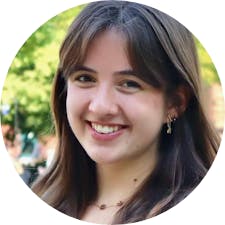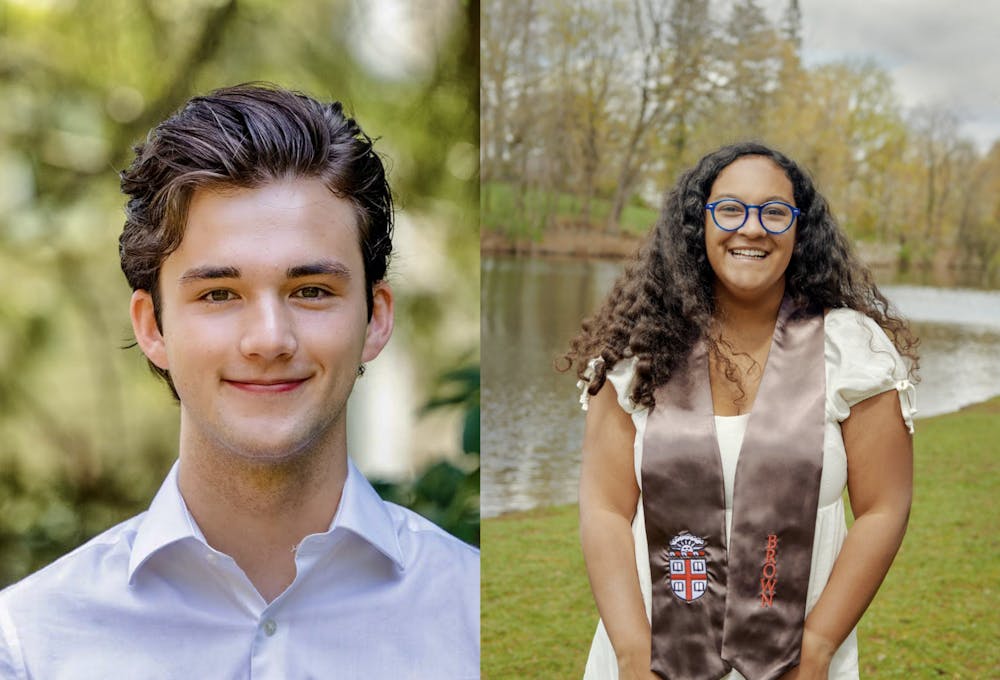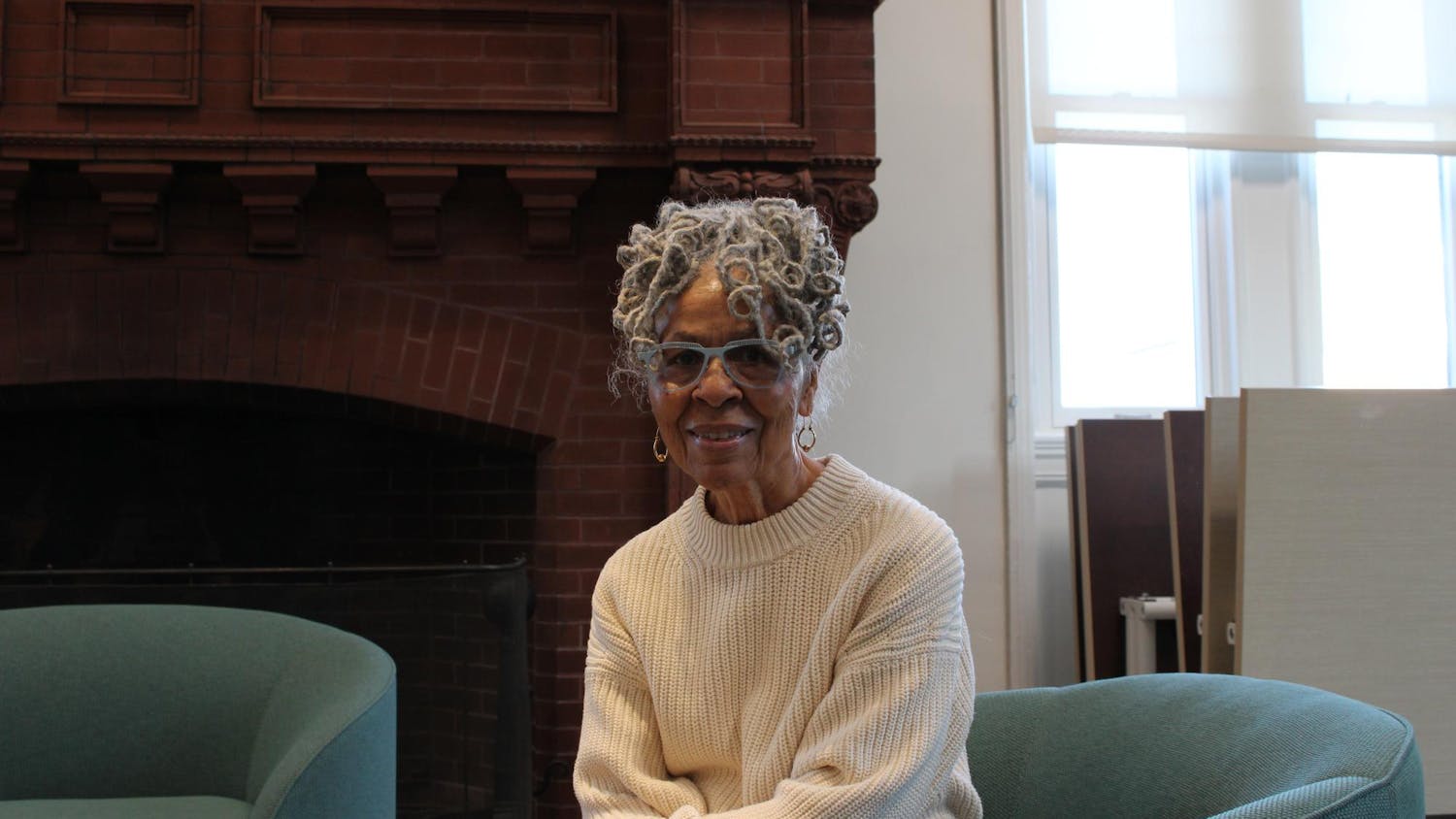With the Fulbright Award’s emphasis on cultural exchange and impact, many Fulbright scholars decide to teach English or pursue work in the humanities. But the scholarship has also created opportunities for Brown alums to conduct STEM research abroad.
“Brown has seen much success in Fulbright proposals for STEM-related research,” Assistant Dean for Fellowships Joel Simundich wrote in a comment to The Herald. “Their work builds bridges between researchers in the US and abroad, uniting research aims, linking laboratories and developing global perspectives for tackling the most pressing research questions in STEM today.”
The Herald spoke with two Brown alums who are currently Fulbright scholars conducting research in STEM fields.
Darci Johnson ’22 MPH’23: Social determinants of health and pregnancy outcomes in a socialized medicine society in Oslo, Norway
After completing both her undergraduate and master’s theses on maternal health, Darci Johnson ’22 MPH’23 now studies the impact of social determinants — which the World Health Organization defines as “non-medical factors that influence health outcomes” — of health on pregnancy outcomes in Oslo, Norway. She employs mixed methods, analyzing both quantitative and qualitative data from health records, interviews and focus groups.
According to Johnson, Norway has “significantly better maternal health than the US does” — one of the reasons she was drawn to complete her Fulbright there. But she has found that differences in pregnancy care and outcome still exist across various social determinants of health, such as education level, income and immigration status.
Johnson initially aimed to discover what she could learn in Norway to bring back to the US, but her research has developed into exploring how Norway can implement policies to improve barriers to care.
Johnson chose 11 adverse pregnancy outcomes — including postpartum bleeding and perinatal depression — and used the Norwegian registry data sets to obtain detailed patient information about pregnancy and birth, which she then linked to demographic factors.
According to Johnson, the ease by which researchers can access data is “really unique to Norway and the rest of the Nordic countries” — one reason why she chose to pursue this research on a Fulbright.
“That’s been incredibly interesting to see,” Johnson said. “There are some factors like income, education or immigrant status that matter more than others, but across the board, with each increasing level of education or income, you’re less likely to have any of those 11 health outcomes.”
The qualitative branch of Johnson’s study has three components: focus groups with Norwegian postpartum mothers who partook in a postpartum homecare visit program, interviews with mothers not originally from Norway and meetings with multicultural doulas in Norway.
Johnson has mostly completed the quantitative arm of her study, with the qualitative research still in progress. Through her interviews, she has found that the international mothers — whom she contacted via a Facebook group — have “a lot to say” about their pregnancy and birth experiences.
“It’s been mixed, depending on where people are from,” Johnson said. “They’re expressing that some things are better here, but also there are things that they’re used to in their home country.”
“A lot of people have turned to social media — to this Facebook group — to ask questions … that they feel as if they should be able to ask a health care provider and they are not really given the time to do that,” she added.
Overall, Johnson said she has gleaned key information from her interviews about “what patients think is important in terms of their pregnancy care,” which she hopes to bring back to the U.S. and “implement wherever (she goes) next.” Post-Fulbright, Johnson plans to move to Washington to work in the federal government on public health policy. Still, she hopes to leave an impact on Norway.
“Pregnancy care is important worldwide, and particularly with this focus on the social determinants of health, this is something that’s important in every single country across the world,” she added.
Dylan Ines ’23: Probing for pathophysiology in Vienna, Austria
Before pursuing a medical degree, Dylan Ines ’23 is researching neuropeptides and developing molecular tools for diagnostic and therapeutic interventions at the University of Vienna’s Institute of Biological Chemistry.
Ines also has a two-pronged project: creating probes to understand the oxytocin and vasopressin signaling systems in humans and studying dynorphins, which are endogenous opioid peptides that have pain relief effects.
“My goal was to develop tools to understand these signaling systems involved in human health, and then also develop drugs for these signaling systems and the diseases that they implicate,” Ines said.
The objects of Ines’s research — signaling systems and dynorphins — have “super widespread” applications to the medical field, as oxytocin and vasopressin are chemical messengers involved in many physiological processes, including breast cancer, pain management and psychiatric issues.
According to Ines, by creating artificial probes that bind to the receptors of the signaling systems, scientists can visualize how they work.
“The fundamental goal is to help understand the signaling pathways that are involved in disease so that maybe other researchers can then use that understanding to develop more effective medications, and also understand the way disease works more fundamentally,” Ines said.
He tailored his Fulbright experience in two ways: first, he wanted to pivot to more life-sciences-based research, as his undergraduate work mainly focused on nanochemistry.
“I chose this lab in particular because I'm currently applying to med school, so it’s highly relevant to the medical field and it’s a great experience for me to gain a lot of skills that I think will be useful during my medical education and hopefully thereafter,” Ines said.
Second, Ines wanted to take advantage of Fulbright’s abroad experience by spending time in a German-speaking environment after being raised bilingually with a German mother.
“It’s been just a cool experience to meet people in a different context while retaining the universality of research processes and methodologies,” Ines said. “The main factor for me was that I could pursue research that would have a meaningful impact on the scientific community, and hopefully medical practice one day, while also engaging in this cultural exchange that defines Fulbright as an institution.”

Elise Haulund is the managing editor of production and development for The Herald's 136th Editorial Board. She is from Redondo Beach, CA. Concentrating in English and biology, she has a passion for exploring the intersection between STEM and the humanities. Outside of writing, researching and editing, she enjoys ballet-dancing, cafe-hopping and bullet-journaling.





